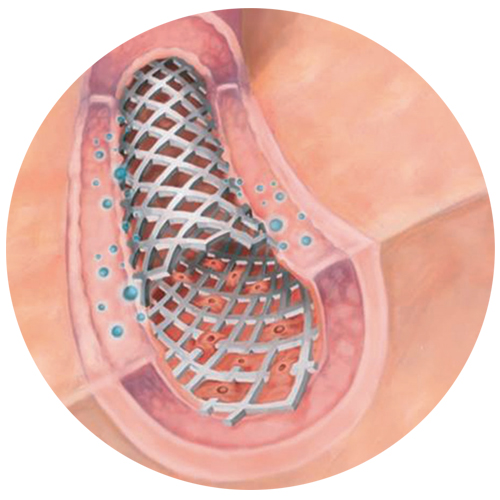The Integrin Ligand c(RGDf(NMe)Nal) Reduces Neointimal Hyperplasia in a Polymer-Free Drug-Eluting Stent System
02-Jul-2014
ChemMedChem, 2014, DOI: 10.1002/cmdc.201490027, Volume 9, Issue 7, page 1620, published on 02.07.2014
ChemMedChem, online article
ChemMedChem, online article
The use of highly active and selective integrin ligands in combination with stent implantation is emerging as a promising alternative to the release of classical immunosuppressive drugs by current drug-eluting stents (DES), which has been associated with delayed vascular healing and late stent thrombosis. Herein we present the development and biological evaluation of the integrin ligand c(RGDf(NMe)Nal) as a potent anti-proliferative molecule that targets coronary artery smooth muscle cells (CASMCs). This peptide showed an antagonistic activity for alpha-v-beta3 and alpha-v-beta-5 in the low-nanomolar range, and selectivity against the platelet receptor alpha-IIb-beta3. In vitro, it efficiently inhibited the proliferation of CASMCs, displaying higher potency than the anti-tumor drug candidate cilengitide. This peptide was then loaded into a polymer-free bare metal stent (BMS), and its release studied at different time points. Up to seven days of elution, the peptide-coated stents retained high antiproliferative activity toward CASMCs. Finally, the peptide was examined in vivo in a polymer-free DES system in a rabbit iliac artery model. After 28 days of implantation, histopathological analysis revealed that the peptide clearly decreased neointimal growth and improved vessel healing and re-endothelialization compared with the FDA-approved Cypher DES. Our study shows that this type of lipophilic integrin ligand, when eluted from a polymer-free stent system, has the potential to successfully ndecrease in-stent restenosis in the absence of delayed vascular healing.











